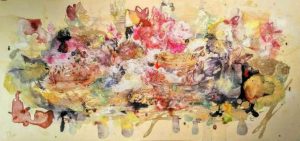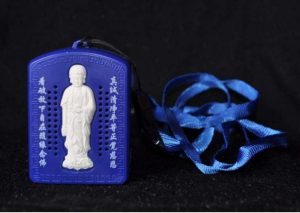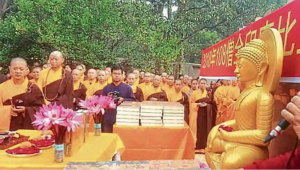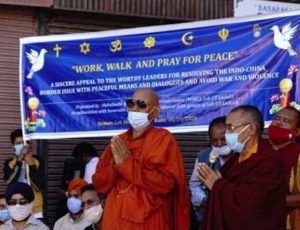Having sampled religious life across Asia, a Westerner is compelled to seek compromise
This provocatively titled book seems intended to ride the coattails of the recent fad for memoirs and books on atheism. It will be of great interest to students of Eastern religions. Orthodox Buddhists probably won’t like it. Atheists might want to give it a miss, because atheism is only incidental to its main themes.
It’s a fascinating book on several levels. It traces Stephen Batchelor’s religious odyssey from his youthful commitment to Tibetan Buddhism, through a transition to Korean Zen, through a study of the Pali canon, to a final transition to what he calls secular Buddhism and his return to lay life.
It’s also a quest for the historical Buddha, and tries to reconstruct the life and times of the Buddha through the Pali texts.
Finally, it questions several aspects of Buddhism, manages to achieve a synthesis between Buddhist and Western thought, and illustrates a problem that often confronts Westerners who turn to Eastern religions.
A child of the 1960s, Batchelor followed the hippie trail through Asia until he reached Dharamsala, where he met the Dalai Lama, embraced Tibetan Buddhism, studied the Tibetan language, and ordained as a monk at the age of 21. Eventually he became a well-known translator of Tibetan texts and an authority on Tibetan Buddhism.
Disillusionment began to creep in when he found himself doubting the doctrine of rebirth. If, as Buddhism maintains, there is no self, then what is reborn? The explanation that an impermanent, non-physical mental process accounts for rebirth failed to satisfy him.
His doubts were exacerbated when they met with incomprehension and opposition from his Tibetan teachers. He was beginning to discover that Eastern religions, like their Western counterparts, have certain doctrines that resist questioning.
A transfer to a Tibetan monastery in Switzerland enabled him to undergo Jungian psychotherapy and to study Western philosophy, especially Heidegger. By this time Batchelor was describing himself as a late-20th-century post-Christian existentialist. But his commitment to Buddhism was still strong, and was attracted by the fluidity and flexibility of Zen.
He joined a Zen monastery in South Korea, but his teacher eventually revealed that the cryptic Zen koans (What was your original face before you were born?) were designed to identify a transcendent Mind as the ground of existence.
This idea derives from the Chitta-Matra (Mind-Only) school of Indian Buddhism, and sounded to Batchelor suspiciously like the Atman doctrine of Hinduism.
His disillusionment intensified when he realised that Korean Buddhists have a group-think mentality that he, as an individualistic Westerner, couldn’t possibly share.
He saw that Korean monks had no compunction about undergoing military training designed to prepare them to kill their country’s enemies.
He recognised that he couldn’t accept the existence of the gods, spirits and demons that inhabit the Buddhist cosmology, and that Buddhism, in seeking to end the cycle of rebirth, ultimately aims at extinction.
Batchelor disrobed at the age of 31, married a French nun (a fellow monastic from the Korean temple), and embarked on a study of the Pali texts, most of which are unknown to Tibetan Buddhism.
Through them he managed to piece together a reconstruction of the life and times of the historical Buddha. He speculates that, in common with other young Kosalan aristocrats, the future Buddha was educated at Taxila, in what is now Pakistan.
He traces the Buddha’s sometimes-problematic relations with the kings of the Gangetic plain, and provides a truly horrifying account of their political machinations, including murder, brutality, betrayal, patricide and even genocide.
If half of what Batchelor tells us is true, the lives of King Pasenadi of Kosala and King Bimbisara of Magadha are the stuff of Shakespearean tragedy. They would make a riveting TV series.
After disrobing, Batchelor and his wife Martine joined a Buddhist community in England for 15 years, then moved to France.
They are still active in international Buddhist affairs, leading retreats, attending conferences, writing and teaching.
Batchelor has written an impressive number of books. He retains an abiding passion for the ideas and practices of the Dhamma, but is reluctant to describe himself as religious.
While rejecting some of the beliefs of orthodox Buddhism, he has fused elements of Buddhist and Western thought into what might be called a Buddhist existentialism.
Instead of denigrating the empirical world as a seedbed of suffering, Batchelor finds in the Buddha’s doctrine of conditioned arising a vision of a dynamic, kaleidoscopic world that is rich in possibilities and constantly changing.
He wants to experience it in all its richness and variety – its pain and pleasure, its squalor and splendour, its meanness and magnificence. The tool he uses to do this is mindfulness.
Batchelor’s saga illustrates a dilemma often faced by Westerners who embrace Eastern faiths. Because of their cultural conditioning, sooner or later they are bound to encounter beliefs and practices that they’re unable to accept. At that point, they have to decide whether to jump ship or stay on board.
In the true Buddhist spirit, Batchelor has forged a middle way between the two extremes that works for him. Whether the Buddha would have endorsed it is something only the Buddha can say.
Confession of a Buddhist Atheist
By Stephen Batchelor
Published by Spiegel & Grau, 2011
Available at Asia Books, Bt450












